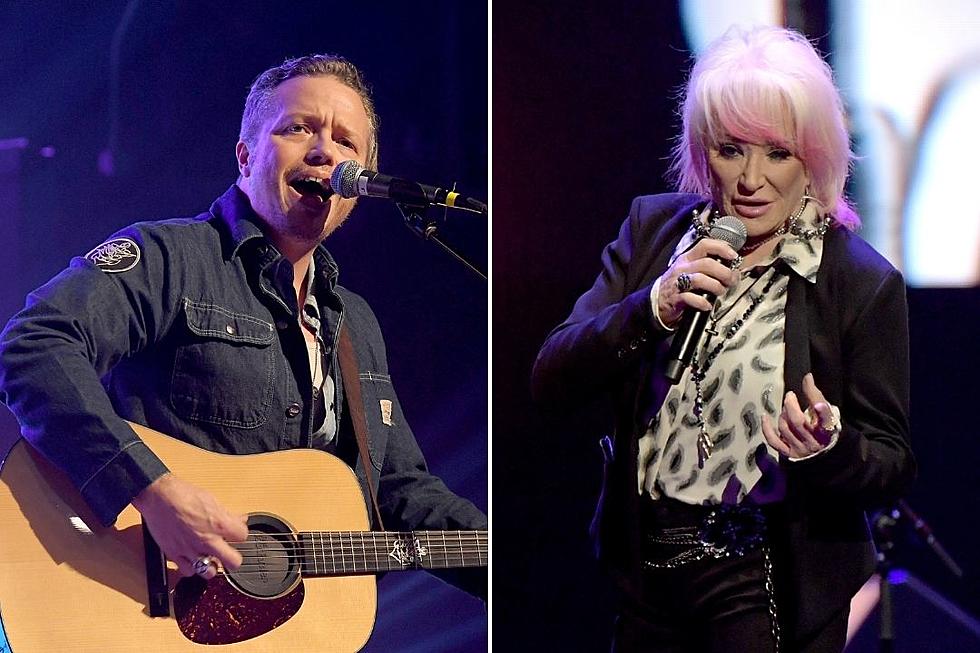
Yola on Being a Black Woman in Country: ‘I Feel Like I’ve Got a Duty to Demonstrate Some Freedom’
Yola's most recent EP, 2016's Orphan Offering, sounds quite different from her forthcoming new full-length album, Walk Through Fire. The former is acoustic and largely self-produced; the latter is lush, drawing on the skills of a bevy of music's living legends. Thematically, however, the singer says the projects are two sides of the same coin.
"They both kind of split together about black female vulnerability, full stop," Yola explains to The Boot. "But I think the idea of being a strong black woman is something I struggle with, regardless of how strong I've actually felt at the time. Both the EP and the album are are linked by the story of me coming out of an abusive environment and in[to] the warmth of full love and safety."
Walk Through Fire's central metaphor is the true story of the time Yola got caught in an appliance fire that set her house ablaze. She walked out hurt, but alive.
Likewise, the singer draws on an abusive relationship that she managed to escape from in tracks such as "Ride Out in the Country." The music video for that song depicts a scenic drive that turns grim when she pulls two bodies out of the car's trunk and buries them in a shallow grave; things take a turn for the even more surreal when the viewer realizes that one of those bodies is her own.
Catharsis, and saying goodbye to one version of herself in order to make room for a new environment ruled by love, are strong themes on Walk Through Fire. However, many audiences -- particularly, many country audiences -- aren't used to hearing black female narratives of any kind.
"I think it's very easy to get drawn into judging books by covers. That's not a new concept," she relates. "But it's just that the stigma that comes with my cover tends to lead to massive neglect."
In the country format, there has been progress toward inclusion of black artists, and toward inclusion of female artists, but black female artists remain on the outskirts of the genre. Kane Brown and Jimmie Allen may be making history within the genre as chart-toppers and tourmates, and Kacey Musgraves and more of country's women may be garnering increasingly broad appeal despite a perennial lack of radio airplay, but black women's voices remain severely underrepresented in the format, with little to no progress being made -- at least, not yet.
That doesn't deter Yola from making the kind of music she wants to make, of course. "I think I try not to consider where I'm going. I try to let the art lead me in that respect," she says. "I don't think it's a good model to make music that you feel safe making."
It's one thing to be aware of a stigma leveled against you, but another to let that stigma dominate your musical direction, she notes. "That feels like a one-way ticket to not being musically free. And I think the most important thing I can achieve is being musically free to do as I please," Yola continues.
"I feel like I've got a duty to demonstrate some freedom. You know? Because I've got the nerve to, and some people don't," she adds. "I need to use that nerve to demand that equality. If Eminem can exist, then I can exist."
Who is Yola? 5 Things You Need to Know
More From KEAN 105


![Yola Finds Her Power in ‘Stand for Myself’ [WATCH]](http://townsquare.media/site/623/files/2021/05/yola.jpg?w=980&q=75)
![Yola Previews New Album ‘Stand for Myself’ With ‘Diamond Studded Shoes’ [LISTEN]](http://townsquare.media/site/623/files/2021/04/yola.jpg?w=980&q=75)

![Yola Delivers Stirring ‘To Be Young, Gifted and Black’ Cover From the Ryman Auditorium [WATCH]](http://townsquare.media/site/623/files/2020/09/yola-young-gifted-and-black.jpg?w=980&q=75)


![If Yola’s Playlist Doesn’t Move Your Soul, Nothing Will [LISTEN]](http://townsquare.media/site/623/files/2019/01/Yola.jpg?w=980&q=75)

